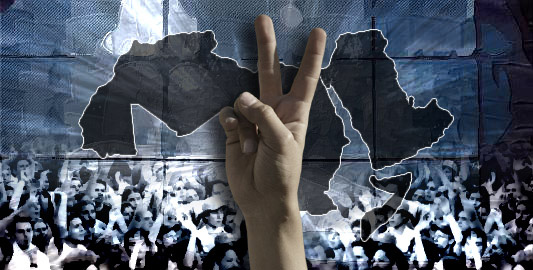
From Michele Dunne, the New Atlanticist: As Libyan rebel forces surged into Muammar Gaddafi’s Bab al-Azizia compound on August 23, the reverberations of their celebratory gunfire were felt far beyond Tripoli. Throughout Libya, a new era was beginning, one full of opportunities and risks. Beyond Libya, citizens of Arab countries in which leaders have mounted vigorous and violent resistance to protests saw that it was indeed possible to overthrow an Arab leader even if much of his army stood by him. And for the international community, the fact that the NATO intervention enabled the rebels’ success raised questions anew about whether to entertain some form of military intervention in other countries, notably Syria. . . .
[M]ost of the Libyans now taking control have positive views of the United States, Europe, and NATO, which they see as allies in their hour of need. (Germany, Turkey, and China meanwhile are scrambling to repair the damage from their initial positions opposing international intervention, as the unseemly scramble for investment in the new Libya begins. . . .)
The Libyan rebel victory also has implications for the international role in Syria’s slowly spreading uprising. One scenario for Syria to keep an eye out for is that parts of the armed forces might abandon al-Assad and begin fighting the Fourth Division headed by the president’s brother that has spearheaded the crackdown. Should a fight break out between poorly equipped rebel divisions and the elite division supporting al-Assad, the international community would have to consider backing up its rhetorical support for the uprising and sanctions with some form of military assistance to the rebels. It was difficult to imagine the international community taking on this role while NATO was bogged down in Libya, but such a scenario could materialize if the Libyan intervention is deemed a success.
As for Libya itself, it is entirely reasonable to expect a difficult transition there, one filled with risks and without a guaranteed democratic outcome. But most of the world’s democracies survived their own obstacle courses as they defined their identities and systems; should not the Libyans be entitled to do the same? Regarding the role of the United States and Europe, they neither started the fight in Libya nor ended it, but their assistance was essential and Libyans are unlikely to forget it. The imposition of a no-fly zone was absolutely essential, it must be remembered, to prevent a massacre in Benghazi and ruthless retribution by Gaddafi throughout the country. As fraught with risks as the road ahead for Libya looks, it is infinitely preferable to the dark place the country would be in now had the West failed to galvanize itself to save Benghazi.
Michele Dunne is director of the Atlantic Council’s Rafik Hariri Center for the Middle East.
Image: arab-spring.jpg
